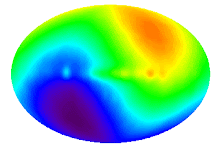The gut microbiota in development and disease.
The influence of the gut microbiota on human health is
continuous from birth to old age. The maternal microbiota may influence both
the intrauterine environment and the postnatal health of the fetus. At birth,
about 100 microbial species populate the colon. Early environmental factors
(e.g., method of delivery), nutritional factors (e.g., breast or
bottle-feeding), and epigenetic factors have been implicated in the development
of a healthy gut and its microbial symbionts. Changes in gut microbial
composition in early life can influence risk for developing disease later in
life. During suckling, the microbial community develops rapidly; shifts in
microbial diversity occur throughout childhood and adult life; and in old age,
there is a decrease in the Bacteroidetes and an increase in Firmicutes species.
The gut microbiota is important for maintaining normal physiology and energy
production throughout life. Body temperature regulation, reproduction, and
tissue growth are energy-dependent processes that may rely in part on gut
microbial energy production. Extrinsic environmental factors (such as
antibiotic use, diet, stress, disease, and injury) and the mammalian host
genome continually influence the diversity and function of the gut microbiota
with implications for human health. Disruption of the gut microbiota
(dysbiosis) can lead to a variety of different diseases, including (A)
inflammatory bowel disease, colon cancer, and irritable bowel syndrome; (B)
gastric ulcers, nonalcoholic fatty liver disease, and obesity and metabolic
syndromes; (C) asthma, atopy, and hypertension; and (D) mood and behavior
through hormone signaling (e.g., GLP-1). The gut microbiota is also important
for drug metabolism and preventing the establishment of pathogenic microbes.
The human
gut microbiota is a complex community that provides important metabolic
functions to the host. Consequently, alterations in the gut microbiota have
been associated with the pathogenesis of several human diseases associated with
a disturbance in metabolism, particularly those that have been increasing in
incidence over the last several decades including obesity, diabetes and
atherosclerosis.

沒有留言:
張貼留言